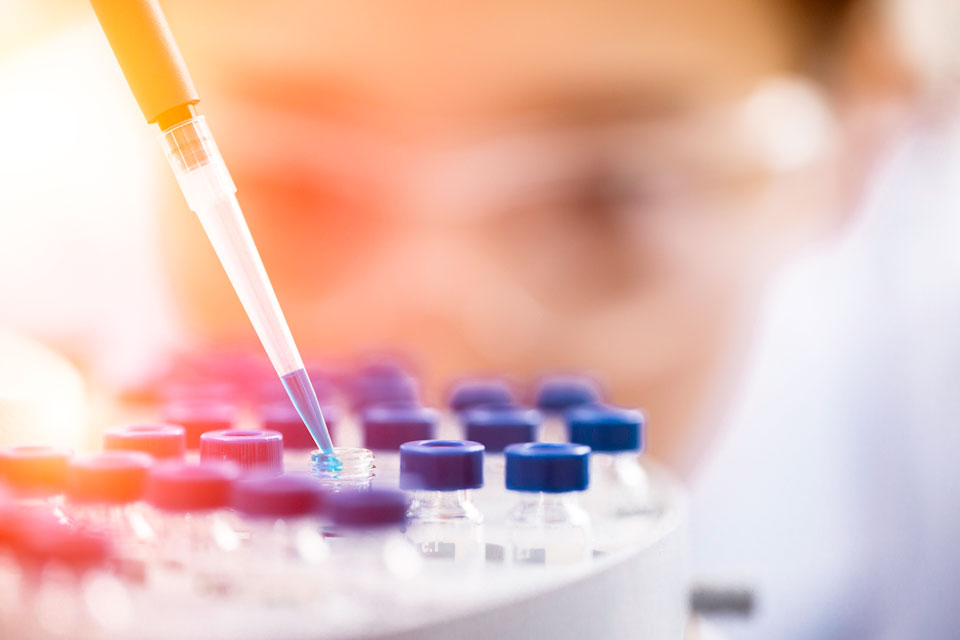Quercetin is a Multi-Faceted Cancer Fighter

Quercetin is a flavonol type of flavonoid, one of the most prevalent polyphenols in the vegetables and fruits we eat, including the beverages derived from them (like wine and juices). In addition to the antioxidant, anti-inflammatory, and immune-boosting benefits studies have shown quercetin offers, research suggests it may act to prevent the development of new cancer and therapeutically arrest and even regress existing cancer growth.2
How Does Quercetin Work Against Cancer?
Many lab, animal, and human studies of quercetin indicate that it is an amazing substance that works in a variety of ways depending on the type of cancer and the potentially cancer-causing situations it detects in the body, generally without causing harmful side effects. Scientists not only seek to measure how much it inhibits cancer growth or how many cancer cells it destroys, but also to understand exactly how it does so. By carefully designing research studies that measure certain outcomes after exposure to quercetin—such as the decrease in a specific type of antioxidant protein that a particular cancer cell produces which protects it from chemotherapy-induced death—researchers can outline the mechanisms by which it works in certain conditions. From this they can extrapolate that quercetin may act in similar ways on other types of cancer cells (or other diseases altogether) that exhibit the same behavior.42
These complex mechanisms, which in broad terms function by promoting the production or inhibition of certain proteins, can be grouped into general categories:
- Causing the death of cancer cells. It’s important to note that this does not mean that quercetin actually kills the cancer cell—which can be injurious to the body. Instead, what quercetin does is trigger apoptosis.
- Inhibition of cancer cell growth. Acting as a natural chemopreventive agent, studies suggest that quercetin can inhibit the occurrence of new, primary cancers, and halt the progress of existing tumor growth. One of the ways it does this is by blocking the creation of new blood vessels that tumors need to feed new growth. In fact, without angiogenesis, studies have shown that tumors cannot grow more than 1 mm in size. Again, this is basically done by inhibiting the proteins that tumor cells express to signal nearby endothelium cells to create new blood vessels.45
- Metastatic prevention. By blocking cancer cells from degrading and penetrating the membrane barrier that separates living cells from the nonliving, structural extracellular matrix (ECM) in the body, quercetin has been shown to prevent certain cancers from infiltrating the blood stream and spreading into the surrounding and distant tissue.45
- Circumventing resistance to chemotherapy or angiogenesis stimulation. Radiation treatments can actually stimulate angiogenesis, but this can be blocked when radiotherapy is administered with polyphenols that inhibit the growth of new blood vessels. Polyphenols represent non-toxic alternatives to synthetic anti-angiogenesis drugs, and may be more effective because they act on multiple (rather than specific) proteins—blocking the tumor cells from producing more proteins in an effort to survive and use other pathways to grow. This multiple-protein effect by polyphenols helps to avoid the risk of drug resistance that often develops in cancer cells.45
- Enhancing the efficacy of chemotherapy drugs. Many studies have shown that combining natural substances like quercetin with standard chemotherapy drugs not only increases their effectiveness, but does so without producing significant toxicity.45
Apoptosis is a sort of controlled self-destruction where the cell breaks itself down into easily absorbed debris.43 This term is used frequently in cancer treatment and research, and is a primary mechanism by which many chemotherapeutic drugs work44
Cancer cells generally have dysfunctional mitochondria that are thought to block chemotherapy drugs from inducing apoptosis. One of the ways that quercetin may boost the effectiveness of chemotherapy is by increasing the permeability of cellular mitochondrial membranes (as demonstrated by in vitro experiments).44
Some of the specific cancers that studies show may benefit from quercetin include:
- Acute lymphoblastic leukemia
- Breast cancer
- Colorectal cancer
- Esophageal cancer
- Hepatocellular (liver) carcinoma
- Ovarian cancer
- Pancreatic cancer
- Prostate cancer
apoptotic mediators, caspases, and other biochemical terms depending on their specific function.


